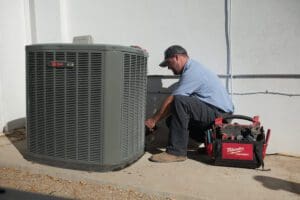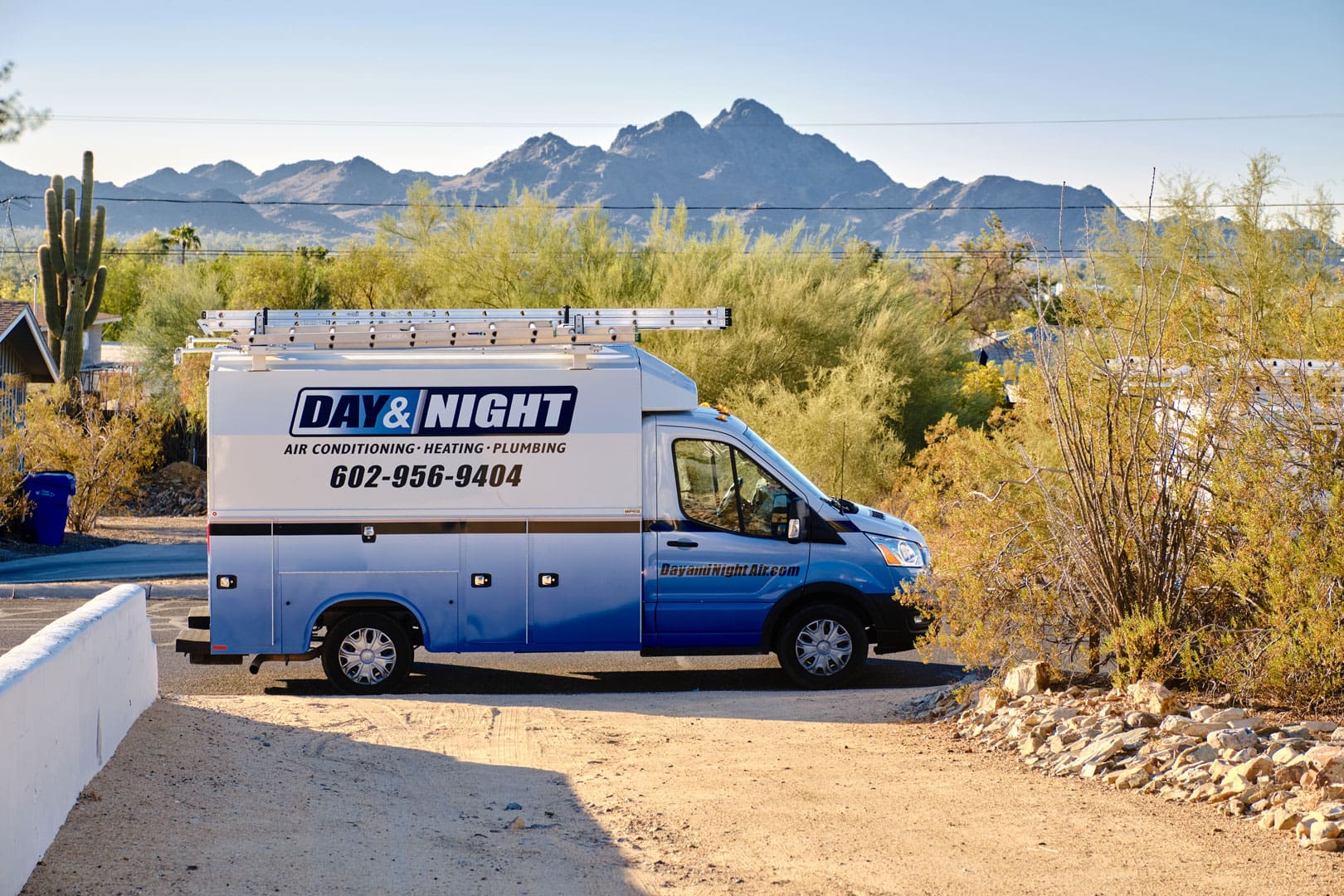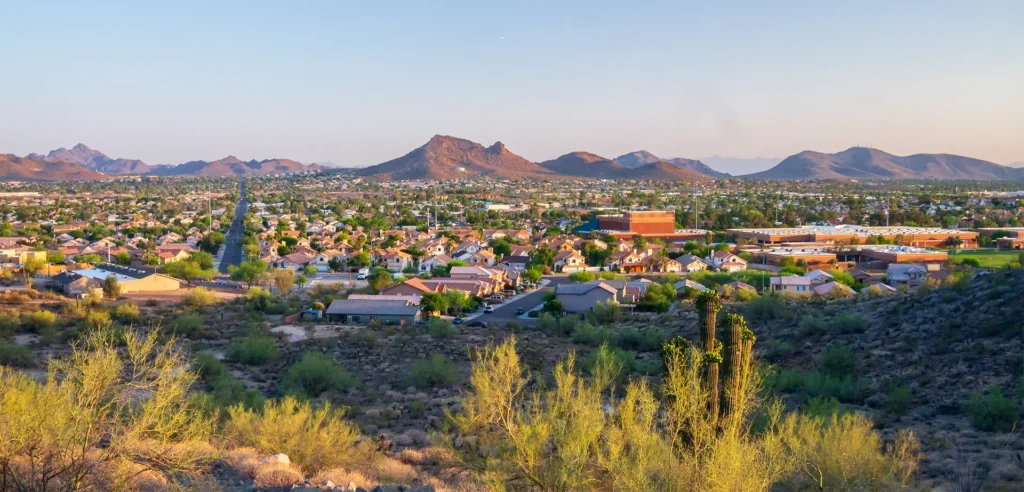Reputable Leak Detection Services
Our team of local plumbers provide exceptional water leak detection services for homeowners in areas of Arizona such as Phoenix, Mesa, Glendale, Peoria, Chandler, and Gilbert. Our specialists are committed to working with you to prevent water damage on your property. Contact our team members to receive support.
Common Signs of a Leak
Recognizing the signs of a leak is crucial for prompt detection and mitigation. Here are some common indicators:
- Visible Water Damage: Look for water stains on ceilings, walls, or floors, which could indicate a leak in pipes hidden behind these surfaces.
- Unexplained Increase in Water Bills: A sudden spike in your water bill without a corresponding increase in usage may suggest a hidden leak.
- Decreased Water Pressure: If you notice a significant drop in water pressure in your faucets or showerheads, it could be due to a leak in the plumbing system.
- Mold or Mildew Growth: Excessive moisture from a leak can create an environment conducive to mold and mildew growth. Keep an eye out for musty odors or visible signs of mold in damp areas.
- Puddles or Wet Spots: Finding puddles or wet spots, especially in areas where they shouldn’t be, such as under sinks or behind appliances, could indicate a leak nearby.
- Sounds of Running Water: If you can hear the sound of running water when no faucets are turned on, there may be a leak in the plumbing system.
- Warm Spots on Floors: In the case of hot water leaks, you might notice warm spots on the floor, particularly near water heaters or in-floor heating systems.
- Cracks in the Foundation or Walls: Severe leaks can sometimes cause structural damage, leading to cracks in the foundation or walls of your home or building.

Causes of Water Leaks
- Corrosion: Over time, pipes can corrode due to exposure to water and other elements, leading to weak spots and eventual leaks.
- High Water Pressure: Excessive water pressure can put stress on pipes, causing them to develop leaks or even burst.
- Freezing Temperatures: In colder climates, water inside pipes can freeze, causing the pipes to expand and potentially crack or burst.
- Poor Installation: Improper installation of pipes or fittings can create weak points that are prone to leaks.
- Aging Infrastructure: As pipes age, they become more susceptible to deterioration and leaks, creating a need for plumbing leak detection.
- Physical Damage: Damage from construction activities, tree roots, or accidental impact can compromise the integrity of pipes, leading to leaks.
- Clogged Pipes: A buildup of debris, mineral deposits, or grease inside pipes can restrict water flow and increase pressure, eventually causing leaks.
- Faulty Seals or Joints: Seals and joints connecting pipes can degrade over time, leading to leaks at these connection points.
Common Areas for a Leak
Regular inspection and maintenance of these areas can help detect leaks early, minimizing damage and conserving water.
Indoors:
- Bathrooms: Leaks often occur around toilets, sinks, and showers. Keep an eye on water stains or dampness around the base of toilets and beneath sinks. Check for dripping faucets or signs of water damage in shower areas.
- Kitchens: Sink areas are prone to leaks, particularly at the connections to drain pipes or supply lines. Additionally, check underneath the sink for any signs of water accumulation or moisture. Dishwashers and washing machines are other potential sources of leaks.
- Basements and Utility Rooms: Water heaters and pipes in basements or utility rooms can develop leaks over time. Inspect the water heater for signs of corrosion or moisture. Check along pipes for any visible signs of leaks or dampness.
Outdoors:
- Faucets: Outdoor faucets or hose bibs can develop leaks, especially if they’re not properly winterized in colder climates. Look for dripping or pooling water around these fixtures.
- Sprinkler Systems: Leaks in underground irrigation lines or around sprinkler heads can lead to water waste and damage to landscaping. Inspect your sprinkler system regularly for signs of leaks or uneven water distribution.
- Swimming Pools: The plumbing associated with swimming pools or spas can develop leaks over time. Keep an eye out for any decrease in water level or damp areas around the pool equipment.
- Underground Water Lines: Leaks in underground water supply lines can be challenging to detect but may result in unusually lush or damp areas in your yard or even a noticeable increase in your water bill.
What Makes Day & Night Different?
Our plumbers are here to recommend solutions for your plumbing needs so you can make the right decision for your home.
Certified & Trustworthy
Our licensed plumbers and sewer technicians can handle any plumbing service you need.
Reliable
You'll get a heads-up when your plumber is on their way for your scheduled time. They'll walk you through any work to be completed and any questions you have.
Advanced Techniques
We offer a variety of smart and eco-friendly plumbing solutions.
Efficient
With our online scheduling tool, we can get you the help you need when you need it.




